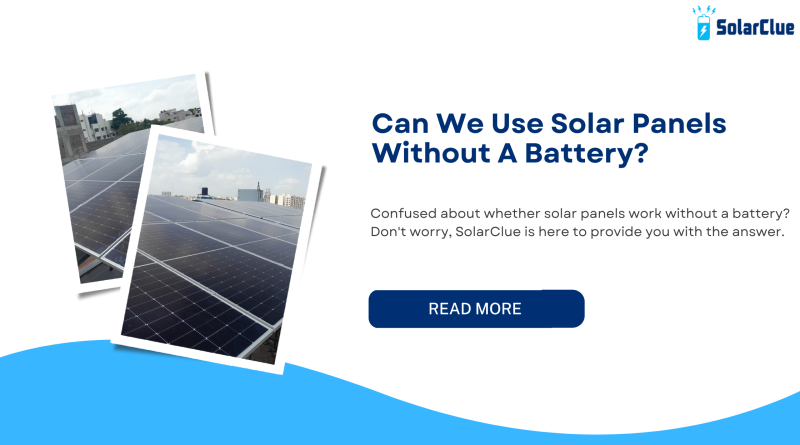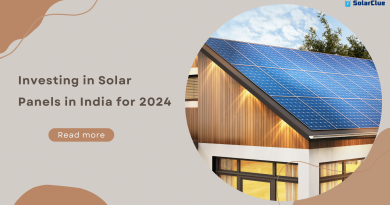Can We Use Solar Panels Without A Battery
Renewable energy sources like solar energy have grown increasingly popular around the world for their potential role in combating climate change and reducing dependence on fossil fuels. Solar panels, in particular, have become a common sight on rooftops in many residential, commercial, and industrial settings. However, the discussion surrounding solar panel systems often mentions a battery or storage system. This presents an intriguing question: Can we use solar panels without a battery?
Table of Contents
Understanding How Solar Energy Works
Before we can answer this question, it is crucial that we understand how solar energy systems operate. Solar panels, also known as photovoltaic modules, function by absorbing sunlight and converting it into electricity. This conversion happens through a process known as the photovoltaic effect. Essentially, solar panels harness daylight, not necessarily direct sunlight, to generate power. Therefore, they can produce electricity even on a cloudy day, though their efficiency may be lower compared to sunny conditions.
Main Components of a Solar Energy System
The primary elements of a solar energy system consist of solar panels, an inverter, and a meter. Solar panels generate DC (Direct Current) electricity from sunlight, which then moves to the inverter. The inverter is responsible for converting this DC power into AC (Alternating Current) electricity – the type of electricity used by the majority of household appliances. On the other hand, the meter records the electricity going in and out of your house from the electric grid, and also the electricity produced by the solar panels.
Solar Panel Systems Without Battery Storage
When it comes to the necessity of batteries in a solar panel system, the answer varies based on the individual’s power requirements and the solar installation. If a building remains connected to the electricity grid, solar panels can indeed operate effectively without a battery. This type of system, known as a ‘grid-tied’ solar system, directly feeds the generated electricity into the building’s electrical system or back onto the electricity grid if excess electricity is produced.
In a grid-tied setup, the grid effectively acts as a kind of battery, absorbing surplus power during the day and delivering it back in the evening or during periods of low sunlight. Therefore, even if you don’t have a battery, you can mitigate energy gaps by sourcing power from the grid. This system is often viewed as the most financially viable for many households as it minimizes initial setup costs by eliminating the need for a pricey storage battery.
Implications of Battery-less Solar Panel Systems
While a battery-less solar system may seem appealing due to lower upfront costs, it’s essential to note that this kind of setup also comes with its limitations. Depending heavily on the grid means you’ll likely face electricity costs during non-daylight hours or cloudy days. Additionally, grid-tied solar systems will go offline during power outages to prevent back-feeding onto the grid and protect utility workers repairing the network. Consequently, buildings with a grid-tied system will be without power during outages, even in bright, sunny conditions.
Considering Energy Storage Options
Given these implications, users looking for more energy independence might find it beneficial to invest in energy storage. An appropriately sized solar battery can store excess energy for use when the panels aren’t producing electricity, offering greater energy security and resilience during power outages. A battery-included setup, also known as a solar-plus-storage system, promises even greater power autonomy, especially vital for regions prone to power shortages.
Conclusion
So, can we use solar panels without a battery? Yes, it’s possible and often economically viable, especially for buildings that remain grid-connected. However, this approach doesn’t provide energy independence and may leave users vulnerable during power outages. Ultimately, whether to include a battery in a solar panel system comes down to an individual’s energy needs, budget, and objectives. Understanding the potential advantages and drawbacks of each option is crucial in making informed decisions about adopting solar energy.
Here at SolarClue®, we offer a smart, practical, and “beautiful” solution. You will be answered for all the questions related to Solar.
We provide all kinds of brands that are the Best Solar panels in India.
If you are the one who is planning for the solar power system. Don’t hesitate to contact our team!
Looking forward to empowering you with solar energy, just like hundreds of our other clients!



